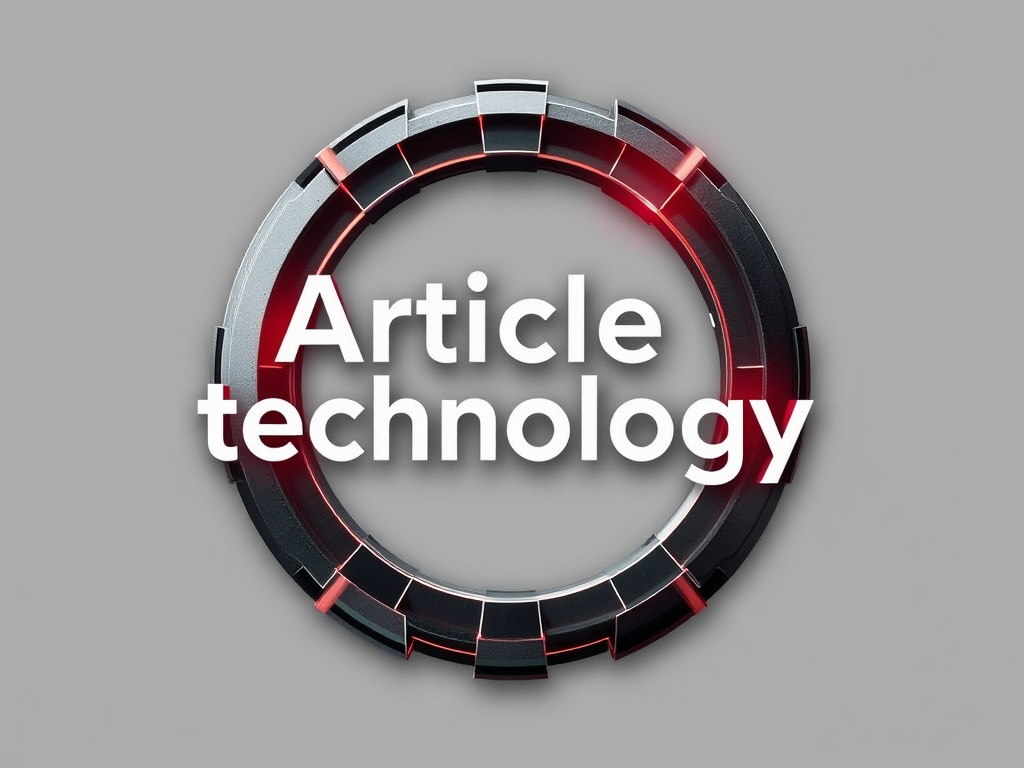Overview of IoT in Marketing
In the realm of contemporary marketing, the Internet of Things (IoT) signifies a groundbreaking shift towards a more interconnected and efficient approach to reaching and engaging consumers. IoT refers to the network of physical objects embedded with sensors, software, and other technologies, enabling them to connect and exchange data. This connectivity offers companies unprecedented opportunities to integrate IoT technology into their marketing strategies, driving a digital transformation across the industry.
Integrating IoT into marketing strategies involves leveraging data collected from a multitude of connected devices to gain insights into consumer behaviors and preferences. This data is pivotal for crafting personalized marketing campaigns that resonate with targeted audiences. By harnessing the power of IoT, marketers can create more engaging and relevant content, resulting in improved customer satisfaction and loyalty.
Topic to read : Unveiling cutting-edge digital marketing trends for uk tech firms
Statistics illuminate the remarkable growth of IoT in the marketing landscape. For instance, the number of IoT devices globally is projected to surpass 75 billion by 2025, illustrating the expanding reach of interconnected technology. This exponential increase underscores the need for brands to adapt and innovate their marketing strategies to capitalize on the wealth of data and connectivity IoT provides. By doing so, companies can not only enhance their marketing effectiveness but also remain competitive in an ever-evolving digital marketplace.
Current Trends in IoT Marketing in the UK
The UK marketing landscape is witnessing a dynamic shift, driven by emerging IoT trends that are reshaping consumer behavior. The integration of IoT technologies enables marketers to collect real-time data and transform it into actionable insights. This shift has led to a revolution in how businesses interact with consumers, making campaigns more targeted and efficient. What’s making waves in the UK is the use of IoT to personalise consumer experiences. Brands are now closely monitoring IoT data to tailor their marketing messages, a move that is predominantly swaying consumer preferences. Engagement strategies are considerably shifting towards automated systems that provide immediate responses to consumer needs.
Additional reading : How is blockchain revolutionizing digital marketing strategies in the uk?
A key trend is location-based marketing, capitalising on IoT sensors embedded in smartphones and wearable gadgets. By using IoT’s geo-targeting capabilities, brands deliver timely and contextually relevant advertisements directly to potential customers’ devices. For instance, several UK retail giants have seen success by deploying smart beacons within their stores. This technology captures real-time shopping data and triggers targeted promotions, leading to increased foot traffic and improved sales conversions.
These case studies showcase the power of IoT in crafting refined and customer-focused marketing campaigns. As companies continue to innovate, IoT’s potential to redefine advertising and enhance consumer satisfaction becomes even more pronounced. As IoT becomes entrenched in everyday devices, the trend will further mature, fostering a profound change in marketing strategies across the UK.
Practical Applications of IoT in UK Marketing
The integration of the Internet of Things (IoT) in marketing is revolutionizing strategies used by firms across the UK, offering a plethora of marketing tactics and innovative applications. Businesses are finding that IoT applications allow for more refined interactions with consumers, improving customer engagement and providing real-world examples of success.
Personalized Marketing Strategies
One of the standout benefits of IoT is its ability to create personalized marketing strategies. By utilising data collected through IoT devices, companies can craft tailored advertisements that resonate on a personal level with their audiences. This customization is achieved by analysing consumer data, such as shopping habits and preferences, to deliver content that is relevant and engaging.
Smart Devices and Consumer Interaction
The use of smart devices is enhancing consumer interaction in ways that were previously unimaginable. These devices include everything from smartphones to intelligent in-store beacons, each playing a vital role in creating a seamless shopping experience. For instance, consumers can receive location-based notifications about special offers as they move through a store, directly boosting engagement and conversion rates.
Data-Driven Decision Making
Finally, the rise of IoT has made data-driven decision making an essential part of modern marketing. By harnessing IoT data analytics, marketers can gain actionable insights that inform strategic decisions. This data drives key marketing decisions, allowing for more efficient allocation of resources and more focused efforts in targeting potential consumers. As IoT continues to evolve, keeping up with these data-rich marketing strategies will be crucial for maintaining a competitive edge.
Challenges and Opportunities in IoT Marketing
As IoT technology continues to reshape the marketing landscape, businesses face both challenges and opportunities in integrating IoT into their strategies. One of the most pressing challenges is the complexity of IoT ecosystems. The need to manage an array of interconnected devices, each generating a vast amount of data, can be daunting for marketers. Ensuring seamless integration and data interoperability across different platforms often requires significant resources and a deep understanding of the technology.
In addition to technical hurdles, data privacy presents a formidable challenge in IoT-focused marketing. With the increasing amount of personal data being collected through devices, marketers must navigate stringent regulations and consumer expectations concerning data security. Safeguarding consumer data and maintaining compliance with privacy laws such as the GDPR is crucial to building trust and avoiding potential legal repercussions.
Conversely, the IoT revolution offers numerous marketing opportunities. With the ability to gather real-time insights into consumer behavior, brands can develop highly personalized marketing strategies that engage and captivate audiences like never before. IoT facilitates the creation of innovative solutions tailored to meet the unique needs of consumers, enhancing satisfaction and brand loyalty.
Addressing data privacy concerns effectively can transform this challenge into a competitive advantage by demonstrating a brand’s commitment to ethical practices. Marketers who successfully integrate IoT while prioritizing consumer trust have the opportunity to position themselves as leaders in the digital age. Thus, while IoT presents particular challenges, the potential rewards of innovative, customer-centric marketing strategies are vast and within reach.
Future of IoT in UK Marketing Strategies
As we venture into the future, the evolution of IoT in marketing promises to be both revolutionary and transformative. Predictions indicate a significant role for IoT marketing evolution within UK marketing strategies, influenced heavily by advancements in AI and machine learning technologies. These elements are poised to elevate data processing capabilities, enabling even deeper insights into consumer behaviours. The enhanced analysis will lead to marketing strategies that are not only more sophisticated but also precisely aligned with consumer needs and preferences.
The anticipated integration of AI with IoT will pave the way for more predictive marketing approaches. This synergy allows brands to foresee consumer trends and behaviours better, adapting their strategies proactively. Moreover, by harnessing these technologies, marketers can explore future trends such as smart personalization, where marketing messages are fine-tuned in real-time based on instantaneous data points. Such developments highlight the growing symbiosis between technological innovation and strategic marketing.
Long-term implications for brands investing in IoT insights are profound. Those embracing these technologies early will likely gain a competitive edge, capitalizing on the ability to provide tailored, engaging, and effective customer interactions. As IoT technologies mature, the distinction between tech-savvy brands and those lagging behind could widen, creating a marketing landscape where adaptability and technological integration define success. Thus, future-oriented brands focus not only on current IoT capabilities but also on continuous adaptation as the technology evolves.
Actionable Tips for Marketers
To successfully integrate IoT technology into your marketing strategies, consider the following actionable tips. First, align your marketing strategies with IoT advancements by identifying specific areas where IoT can enhance your campaign’s effectiveness. This could involve using IoT data to understand consumer behavior patterns or preferences.
Leverage IoT data by setting up systems that can collect and analyze data from IoT devices, providing actionable insights into consumer engagement and campaign performance. By capturing real-time data, brands can tailor their messaging and offerings to meet consumer needs more effectively, leading to more targeted marketing campaigns.
Additionally, it’s crucial to remain adaptable and continuously evolve your strategies. As IoT technology advances, staying informed about new developments will ensure you maintain a competitive edge. This involves regularly reviewing and updating your integration techniques, ensuring your brand capitalizes on new opportunities presented by the digital transformation.
Finally, consider the importance of data privacy. Build consumer trust by implementing robust data protection measures and ensuring compliance with regulations. By addressing privacy concerns proactively, you can gain a loyal customer base that feels secure in interacting with your brand. This commitment to ethical practices not only mitigates risk but also enhances your brand’s reputation in an increasingly interconnected marketplace.

